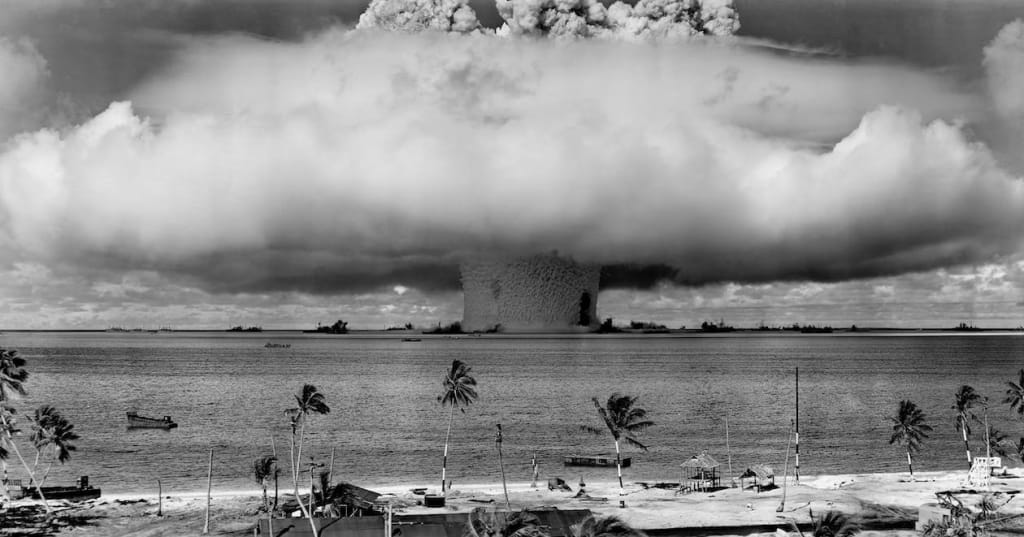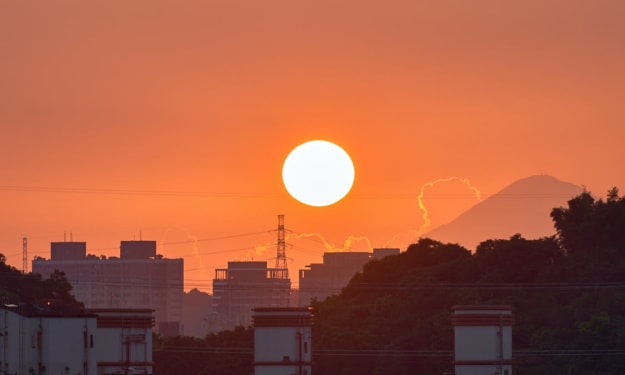What if nukes war happened?
What if nukes war happened?

The prospect of a nuclear war is a highly concerning and alarming scenario. The consequences of such a conflict would be devastating on a global scale. While I can provide some general insights, it's important to remember that the specific outcome of a nuclear war would depend on numerous factors, including the number of nuclear weapons used, their yield, the targets, and the countries involved.
Here are some potential consequences of a nuclear war:
1. Massive loss of life: The immediate impact of nuclear explosions would cause the death of millions of people in the affected areas. The detonation of nuclear weapons releases an immense amount of energy, resulting in widespread destruction, fires, and radioactive fallout.
2. Environmental devastation: Nuclear explosions produce radioactive fallout, which can contaminate the environment and have long-term effects on ecosystems and human health. The release of large amounts of smoke, dust, and soot into the atmosphere could lead to a "nuclear winter" scenario, where sunlight is blocked, causing a sharp drop in temperatures and negatively impacting agriculture and food production.
3. Humanitarian crisis: The infrastructure necessary for the survival and well-being of societies, such as healthcare, food production, and clean water supplies, would be severely damaged or destroyed. This would lead to a humanitarian crisis, with a shortage of basic necessities and a breakdown of social order.
4. Global economic collapse: A nuclear war would have a catastrophic impact on the global economy. The destruction of major cities, infrastructure, and industrial centers would result in a significant decline in productivity, trade, and financial systems. The long-term consequences could be a deep recession or even a global depression.
5. Nuclear winter: As mentioned earlier, the release of smoke, dust, and soot into the atmosphere from nuclear explosions could block sunlight and lower temperatures. This would disrupt agricultural production, leading to food shortages and famines, further exacerbating the humanitarian crisis.
6. Escalation and retaliation: Nuclear war has the potential to escalate rapidly. If one country were to use nuclear weapons, it could trigger a chain reaction of retaliatory strikes by other nuclear-armed nations, leading to further devastation and loss of life.
Given the severity of these consequences, it is crucial to prevent the occurrence of a nuclear war. The international community has been actively engaged in efforts to promote nuclear disarmament, non-proliferation, and diplomatic resolutions to conflicts in order to reduce the risk of nuclear conflict.
The first consequence of a nuclear war is the massive loss of life. Nuclear explosions release an immense amount of energy in the form of intense heat, shockwaves, and radiation. The immediate impact of such explosions would result in the deaths of millions of people in the affected areas. The destruction caused by the blast itself would be extensive, leveling buildings and infrastructure within a wide radius. The intense heat generated by the detonation would cause fires to spread rapidly, compounding the destruction.
Furthermore, the release of radiation during a nuclear explosion poses a significant threat to human life. Radiation can cause immediate fatalities, as well as long-term health effects such as cancer, genetic mutations, and organ damage. The extent of the casualties would depend on factors such as the number of nuclear weapons used, their yield, and the population density of the targeted areas.
It's important to note that the consequences would not be limited to the immediate blast zone. The effects of a nuclear war would extend far beyond the targeted areas due to radioactive fallout. Fallout occurs when the materials vaporized in a nuclear explosion condense and fall back to the ground, carrying radioactive particles with them. These particles can be carried by wind currents over vast distances, contaminating the air, soil, and water sources in the surrounding regions. Exposure to this radioactive fallout can lead to radiation sickness and increase the risk of developing various cancers and other health issues.
The loss of life resulting from a nuclear war would be catastrophic, causing immeasurable pain and suffering for individuals, families, and communities. The scale of destruction and loss would be unparalleled in human history, emphasizing the urgent need for the prevention of nuclear conflicts and the pursuit of peaceful resolutions to international disputes.
About the Creator
Enjoyed the story? Support the Creator.
Subscribe for free to receive all their stories in your feed. You could also pledge your support or give them a one-off tip, letting them know you appreciate their work.





Comments
There are no comments for this story
Be the first to respond and start the conversation.